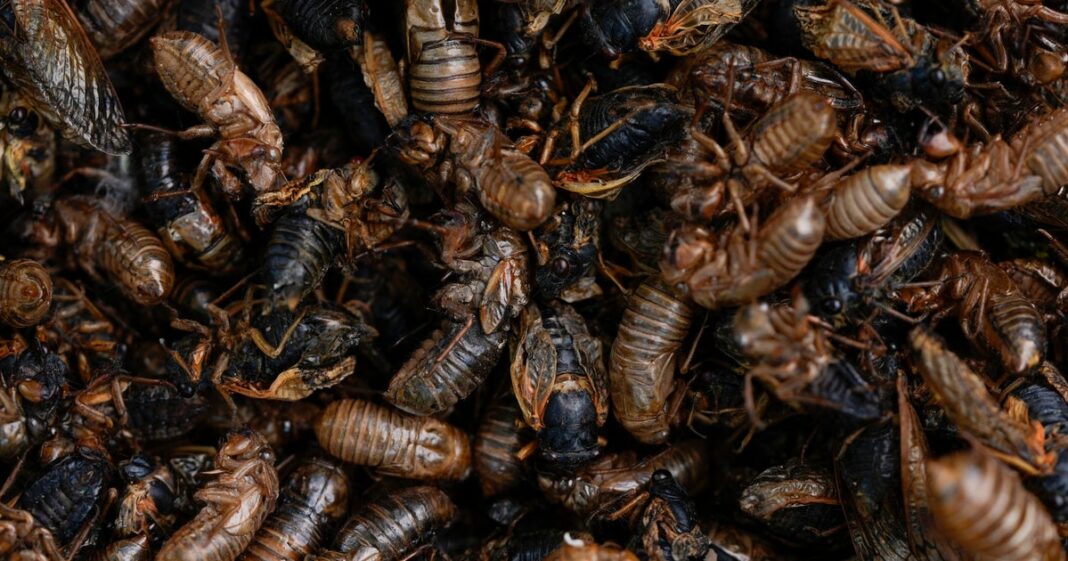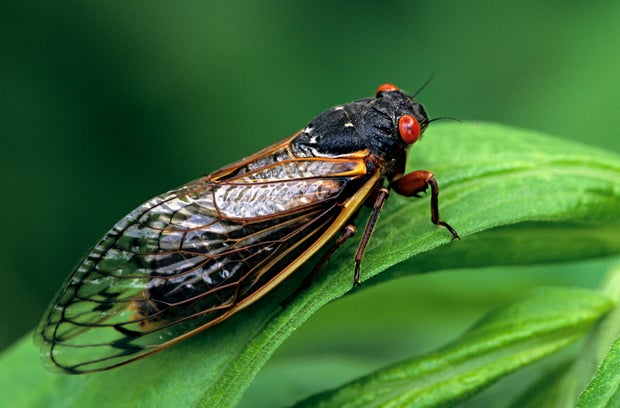Cicadas are poised to return at some point in the spring of 2025, potentially bringing billions of bugs to neighborhoods across the eastern United States.
The group of cicadas set to appear has been labeled Brood XIV. Emerging once every 17 years, Brood XIV is the second-largest group of periodical cicadas — which rise from underground en masse — and will be the only group this spring. That means there will likely be fewer cicadas above ground than there were in 2024, when multiple broods of cicadas emerged at the same time.
Where will cicadas emerge in spring 2025?
Cicadas this year will likely be concentrated in Kentucky and much of Tennessee. The insects from Brood XIV are also expected to show up in parts of Georgia, Illinois, Indiana, North Carolina, Virginia and West Virginia, in addition to smaller pockets farther north in Cape Cod, Massachusetts, central Pennsylvania and Long Island, New York.
CBS News’ data team created an interactive map that shows where cicadas are expected to be this year. The map uses information from the University of Connecticut’s Cicada Project, which plots the brood’s spread based on its known locations in the past.
When will cicadas emerge in spring 2025?
The huge groups of cicadas emerge when the soil reaches about 64 degrees Fahrenheit, according to University of Connecticut researchers. In warmer states, cicadas usually come out in late April or May. In cooler states, their arrival tends to occur in May or early June.
How long will cicadas be above ground?
Researchers say cicadas typically remain in a given area for 4 to 6 weeks after they first emerge. Most individual cicadas live for just a few weeks, but, since the emergence itself happens over two weeks, their eventual fading will also be staggered.
What are cicadas?
Cicadas are a type of insect, related to stink bugs, bed buds and aphids. The ones expected to arrive in droves this year are a variety called periodical cicadas, which appear in huge swarms and often create loud buzzing sounds, according to the National Wildlife Federation. Annual cicadas exist as well.
FREELENS Pool / Matthias Graben / Getty Images
Periodical cicadas have earned a reputation across eastern North America because of their conspicuous recurrence. Individual “broods” are biologically synchronized to crop up simultaneously in 13- or 17-year intervals, when they rise from their burrows underground in populations that can reach up to the trillions. Between intervals, they live in soil as larvae and feed on fluids from plant roots, the wildlife federation explains.
There are three species of cicadas that emerge every 17 years, and four species that materialize every 13 years, according to researchers at the University of Connecticut. When cicadas share the same emergence year, they’re considered part of a brood.
The interactive map below shows where different broods are scattered across the country.
Active periodical cicada broods in the U.S.
Select a brood:
Why do cicadas make noise?
The noise people often hear from cicadas is a mating tactic, according to the wildlife foundation, which notes that male cicadas tend to crowd together and produce raucous choruses in efforts to attract females. Once the mating process has ended, female cicadas deposit their eggs in tree branches. When they hatch, the larvae fall to the ground, burrow into the soil, and the cycle starts again.


